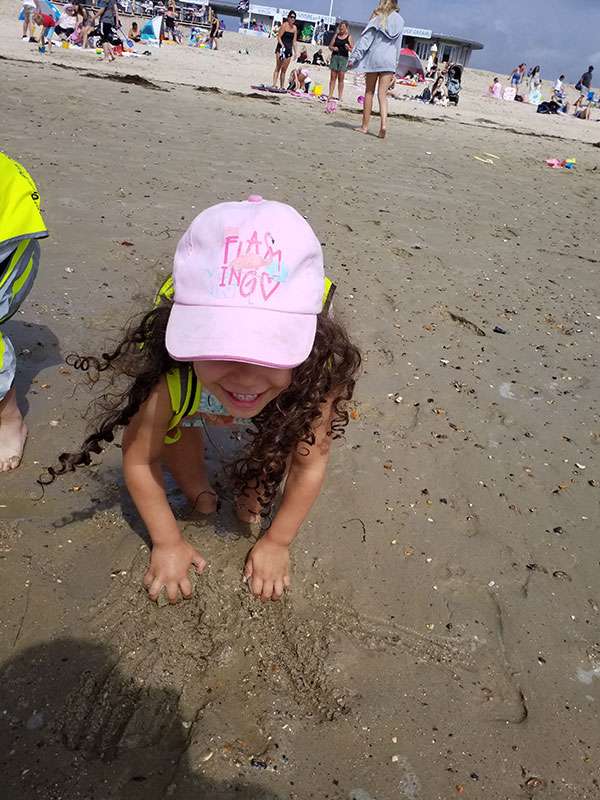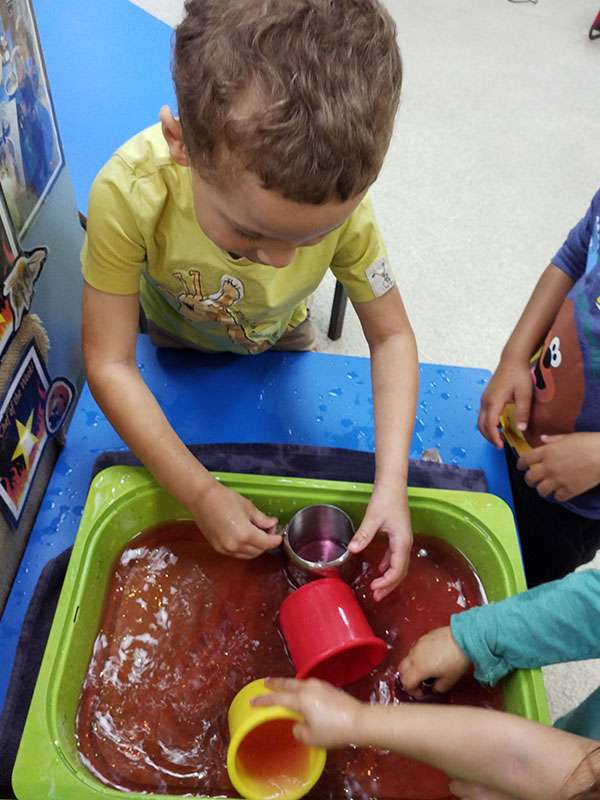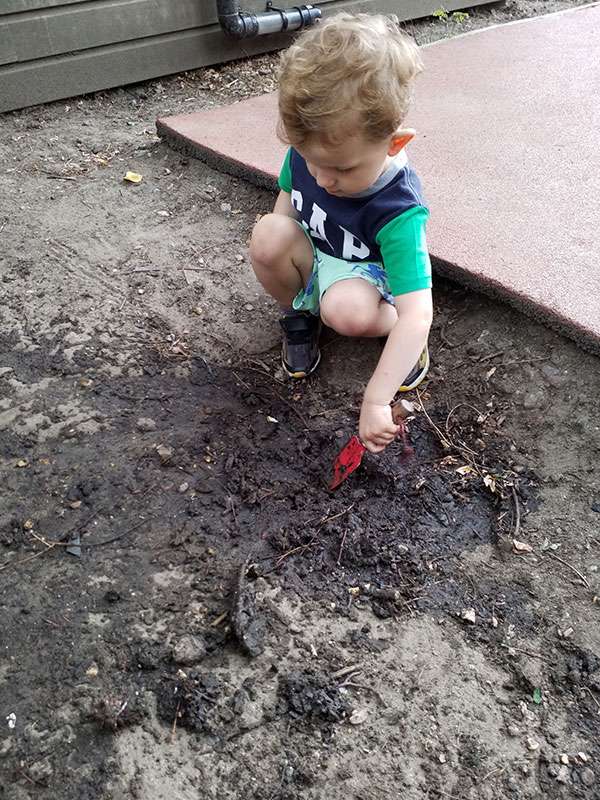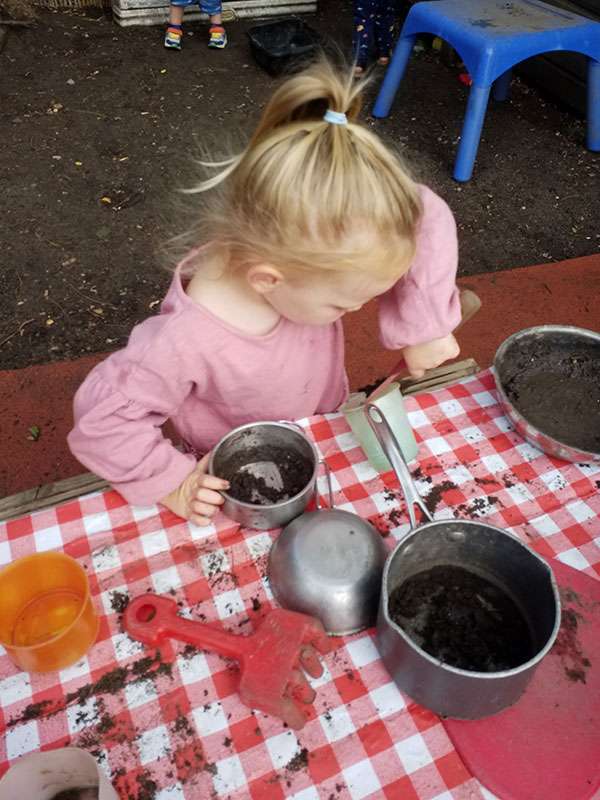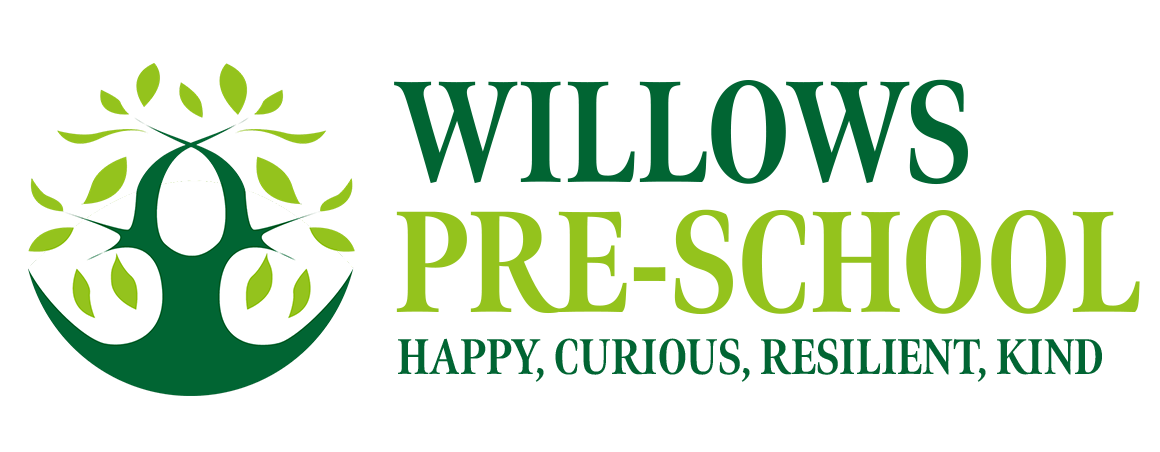Using the term ‘messy’ doesn’t always bring positive views of child-led learning. Maybe a bit more of an adequate way of addressing it, by giving it the importance it has in child development, might be: ‘sensory and manipulative play’. This would help draw the perception of the inconvenience of cleaning away and state the huge amounts of benefits this type of play brings. Some of them will be stated later when talking about the main EYFS areas of learning.
I would like to embrace all that it has to offer and to celebrate its inclusion in early experiences, not only within the nursery setting but as part of home experiences.
If you allow me, I will encourage you to take a little walk down memory lane: think about a memory you have about you playing as a child. I’m pretty sure most of the memories will have some sort of mess involved. Maybe jumping up in muddy puddles after a rainy day, pretending to make lunch for your dollies by using all sort of plants, mud and stones…Let’s not forget about the feelings these activities brought to us and give our own children the opportunity to create their own. Don’t let mess be an impediment for a great time and memory to be created.
By looking at the main areas of the EYFS we can see the importance of messy play:
Physical development
With mark making now under this area, we can focus clearly on providing activities to build the physical skills children need to develop before they even pick up a pencil, let alone learn to control it properly. What about encouraging children to interact with messy activities in the bathtub at home, what I like to call a controlled mess!! Some ideas would be exploring with a mixture of cornflour and water, shaving foam, edible paint made with yoghurt and food colouring…Add some brushes and let the mark making fun begin!!
Communication and Language
Messy play allows children to work together to explore the sensory opportunities provided whilst building vocabulary as they discover the specific attributes, they are able to make the connections between the concept of the word crunchy by exploring crunchy materials such as leaves or a tray with Cheerios and dinosaurs in it.
Personal, social and emotional development
As mentioned above, many messy play offerings can be planned to actively encourage cooperative play, to help children to build their social skills as well as to develop their own confidence in approaching unfamiliar situations. By supporting children in their explorations, we help them to explore their feelings about different materials, their likes and dislikes and to build their confidence to express their own ideas and feelings.
